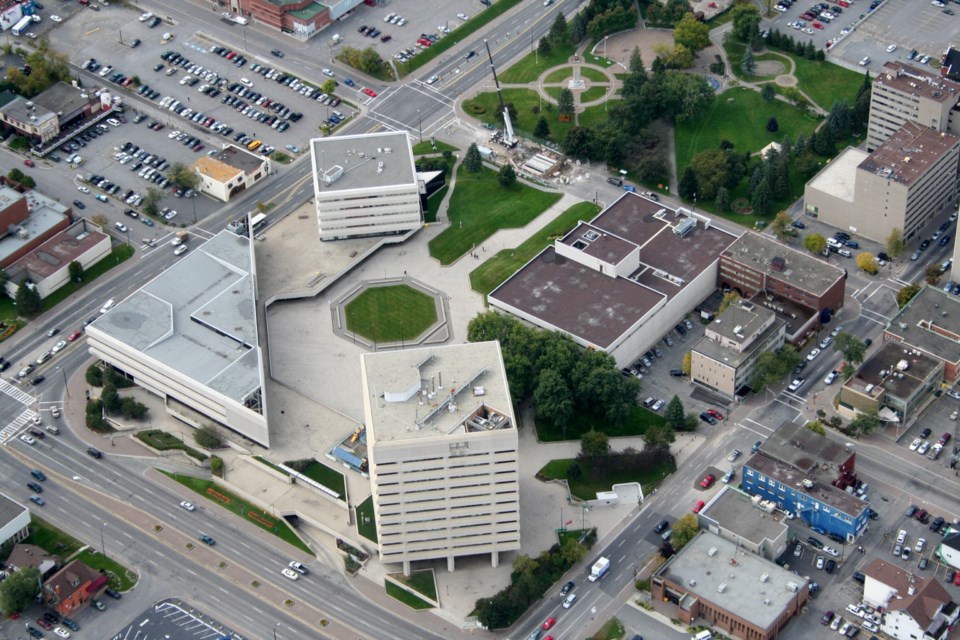This year’s average residential property tax bill could jump by $176, if city council follows through with administration's tax implementation plan.
City administration tabled a report on implementing 2023 budget decisions, which the finance and administration committee of city council will consider during their May 16 meeting.
Factoring in both municipal and education taxes, residential properties are slated to see their taxes jump by an average of 4.5 per cent, commercial properties face a 3.4-per-cent tax increase, and industrial property taxes will go up by 2.3 per cent.
Frozen education taxes helped bump the rates a bit lower than they would have otherwise been, with the municipal portion ending up coming to a five-per-cent increase for residential, 4.5-per-cent increase for commercial and 2.7-per-cent increase for industrial.
This, against an overall tax levy increase of 4.6 per cent approved by city council at the close of 2023 budget deliberations in February, at which point they settled on a $708-million budget.
The disproportionate increase in residential property taxes is a result of the city easing some of the tax burden off of industrial properties, as mandated by the province.
At issue is the city’s tax ratios.
The baseline tax ratio is the one for residential, from which taxes levied against other property classifications are calculated in accordance with their ratios.
The current industrial ratio is 3.59, meaning industrial property owners spend 3.59 times more on property taxes than residential property owners.
The city’s industrial tax ratios (3.59 for industrial and 4.168 for large industrial) are currently above the provincial threshold of 2.63.
In their proposed plan for 2023, the city has reduced the industrial tax ratios slightly, resulting in $650,000 in tax revenue shifting from industrial properties to other property classes.
A similar tax ratio change took place when implementing the 2022 budget, when $340,000 in taxes that would have been otherwise levied against industrial properties shifted to other property types.
The city has taken a multi-year approach to lessening the tax burden on industrial properties. For city council to take the industrial ratio all the way down to the provincial threshold, they’d have to shift $6.8 million in tax revenue from industrial properties to other property classes, which city administration has not recommended.
Another factor in determining 2023 tax rates is the city’s area rating model, wherein taxes vary depending on location within the municipality to cover fire and transit services.
The area rating model was most recently affected by a 2021 decision of city council to add eight career firefighters to their ranks at Station 16 in Val Therese.
The $1.075-million annual expense is being paid for through the city’s area rating model, which over the course of three years has been easing the entire cost onto properties located within the former City of Valley East.
During the first year, one-third of the arbitration was attributed to the former City of Valley East (composite area,) while career (former City of Sudbury) and volunteer areas (the rest of the municipality) were allocated two-thirds.
Year two saw the composite area carry two-thirds of the cost, and career and volunteer areas cover the balance.
This year, the entire amount of the arbitration award is being paid for within the composite area.
When factoring in the area rating model (which includes the fire staffing change), the overall proposed 2023 municipal and education tax burden on a residential property with an assessed value of $230,000 is:
- Career/Urban (former City of Sudbury): $3,794, which includes a 2023 increase of 3.7 per cent increase ($136)
- Composite/commuter (former City of Valley East): $3,659, which includes a 2023 increase of 6.4 per cent ($221)
- Volunteer/commuter (most all other areas of the City of Greater Sudbury): $3,476, which includes a 2023 increase of 4.9 per cent ($161)
- Volunteer (formerly unorganized areas): $3,343, which includes a 2023 increase of 5.2 per cent ($164).
The city’s May 16 finance and administration committee meeting also includes a report on the potential impacts of multi-year budgeting.
Ward 9 Coun. Deb McIntosh introduced a successful motion earlier this year for administration to look into multi-year budgeting’s potential.
City administration has recommended the implementation of a two-year budget encompassing 2024 and 2025, during which council would put into motion a two-year average annual tax levy.
During its second year, the city’s elected officials would have the opportunity to alter the plan as they see fit.
The city has estimated that a two-year budget would save staff approximately 3,000 hours of work, “conservatively,” with most of the saved time taking place in the second year. The current annual budget process is estimated to require approximately 10,000 hours of staff time.
The public portion of the May 16 finance and administration committee begins at 6 p.m. It can be attended in-person at Tom Davies Square or viewed online by clicking here.
Tyler Clarke covers city hall and political affairs for Sudbury.com.
